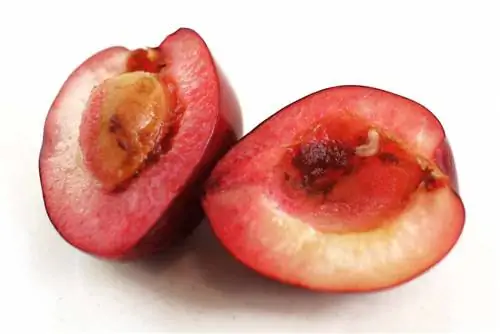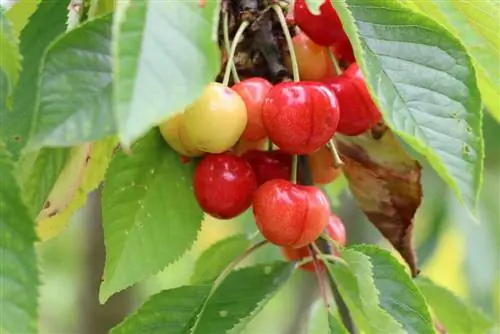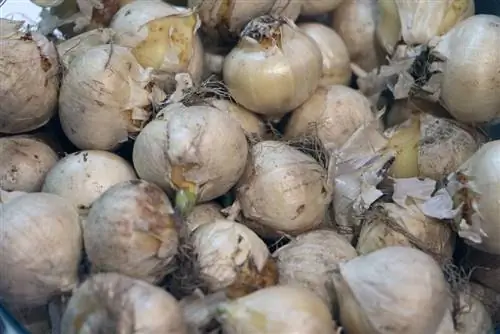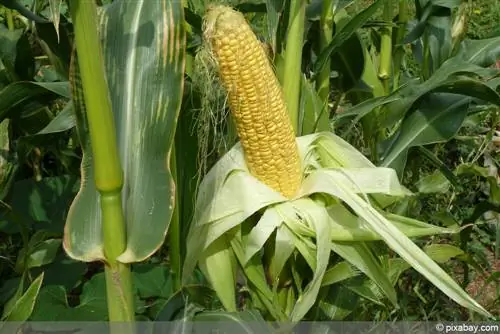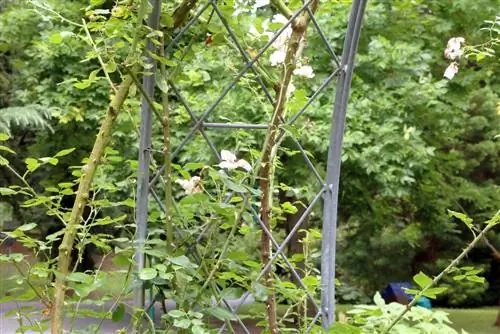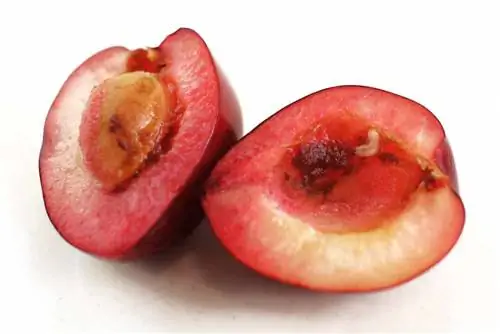- Author admin caroline@plants-knowledge.com.
- Public 2023-12-17 03:39.
- Last modified 2025-01-24 12:45.
If the cherries are already infected, countermeasures can no longer be taken. Therefore, control must take place at the time the eggs are laid.
Remedies for controlling cherry fruit flies
Cherry fruit flies overwinter in the soil and begin laying eggs in May or June. They rely on the weather to be as warm and dry as possible, so the flight time of these insects varies depending on the weather. They mainly fly to the yellow fruits to lay their eggs, so they can be controlled with yellow panels. These yellow panels attract flies with their color and an attractant, and are coated with glue so that the flies stick to them and die. About two of these yellow boards are required per meter of tree height.
Chickens & Ducks
Chickens and ducks are among the natural enemies of cherry fruit flies. Anyone who keeps these animals in their garden can therefore limit the population of cherry fruit flies by letting the birds scratch under the fruit trees in autumn and winter. They eat the pupae that overwinter in the ground and also eat the fallen fruit that may still contain cherry maggots.
Nematodes
Nematodes can be bought commercially. They are placed in water and poured onto the ground around the cherry tree. From there they spread into the soil and feed as parasites on the larvae of cherry fruit flies. When using this type of control, it is important to remember that nematodes do not tolerate sunlight. They may therefore only be applied in the evening or when the sky is overcast. The nematodes also need reasonably moist soil in order to move. Nematodes are suitable for controlling many pests; to use them against cherry fruit fly larvae, they are best applied in June.
Protecting the soil
A film placed under the cherry tree prevents the larvae from penetrating the soil to pupate and overwinter. At the same time, all the cherries that have already rotted and fallen from the tree due to the infestation with larvae collect there. In this way, the infestation can be reduced next year - but care must be taken not to dispose of the fallen fruit in your own compost, as these pests would then spread again from there next spring.
Protection of fruits
A cultural protection net around the crown of the cherry tree prevents the cherry fruit flies from laying their eggs in the cherries. In order to keep out these small flies, some of which are less than five millimeters in size, it must be woven with a very fine mesh. It is also important to ensure that there are no gaps that the flies could use as an entry path.
Planting early ripening cherry varieties
Cherries that ripen early are usually free of maggots and worms. In their case, the pre-ripening of the fruits occurs before the flight time of the cherry fruit flies, so they are of no interest to these insects as food for their larvae and are spared. When a new orchard is being planted, it is therefore important to consider whether one of the early cherry varieties can be planted in order to prevent an infestation from the outset.

